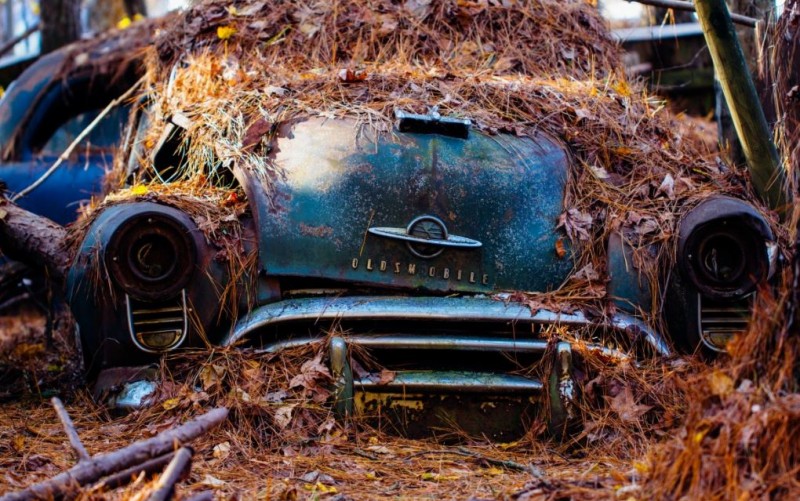
The rainy season can pose a significant threat to your car's exterior, especially when it comes to rust. Rust not only affects the appearance of your vehicle but also reduces its structural integrity. To ensure your car remains in optimal condition, it's crucial to take preventive measures to protect it from rust during this wet and humid season. In this article, we will explore effective strategies and practical tips to help you prevent car rust during the rainy season.
Understanding Car Rust
Before delving into prevention methods, it's essential to understand what causes car rust. Rust is the result of a chemical reaction between iron, oxygen, and moisture. When these elements combine, they form iron oxide, commonly known as rust. The rainy season increases the risk of rust due to the constant exposure of your car's metal surfaces to moisture.
Keep Your Car Clean
Regular cleaning is a fundamental step in preventing car rust. Dirt, grime, and road salt can trap moisture against the surface of your vehicle, accelerating rust formation. Ensure you wash your car regularly, especially after driving on wet or salty roads. Use a mild car detergent, soft sponge, and clean water to remove any contaminants effectively.
Apply a Protective Wax or Sealant
Applying a protective wax or sealant acts as a barrier between your car's paintwork and external elements. These products create a hydrophobic layer that repels water, reducing the chances of rust formation. Prioritize high-quality waxes or sealants and follow the manufacturer's instructions for application. Regularly reapply the protective coating to maintain its effectiveness.
Utilize Rust Inhibitors
Rust inhibitors are chemical compounds specifically designed to prevent or slow down the formation of rust. These products can be sprayed or applied directly to your car's vulnerable areas, such as the undercarriage and wheel wells. Rust inhibitors penetrate the metal surface, creating a protective barrier that inhibits the corrosive process.
Avoid Accumulated Water
During the rainy season, it's crucial to avoid allowing water to accumulate around your car. Standing water can seep into crevices, joints, and other vulnerable areas, increasing the risk of rust. Park your car in areas with proper drainage, and avoid parking under trees where water may drip onto the vehicle. Regularly check and clean your car's drainage channels to prevent water accumulation.
Regularly Inspect and Maintain Your Car
Frequent inspections and maintenance are essential for preventing car rust. Regularly check your car for any signs of paint damage, scratches, or chipped surfaces. Address these issues promptly to prevent moisture from reaching the exposed metal. Additionally, keep your car's underside clean by removing debris and inspecting for any signs of rust or corrosion.
Protect Vulnerable Areas
Certain parts of your car are more prone to rust due to their exposure to water and road debris. Pay extra attention to vulnerable areas such as the wheel wells, door sills, and the bottom edges of doors and fenders. Apply rustproofing agents or coatings specifically designed for these areas to provide an additional layer of protection.
Keep Your Car Sheltered
Whenever possible, park your car in a covered or sheltered area to shield it from rain and excessive moisture. A garage or carport provides excellent protection against the elements and significantly reduces the chances of rust formation. If parking indoors is not feasible, consider investing in a waterproof car cover to keep your vehicle dry.
Monitor and Address Paint Damage Promptly
Paint damage, including scratches, chips, and dents, exposes your car's metal surfaces to moisture and accelerates rust formation. Regularly inspect your car's paintwork and address any damage promptly. Touch up small chips and scratches using matching touch-up paint, or consider professional paint repair for more extensive damage.
Consider Rustproofing Treatments
If you live in an area with a particularly rainy climate, you may want to consider rustproofing treatments for your car. Rustproofing involves applying a protective coating to the underside of your vehicle, providing long-lasting defense against rust and corrosion. Consult a professional automotive service provider to determine the most suitable rustproofing option for your car.
Protecting your car from rust during the rainy season is crucial for maintaining its appearance and overall condition. By following the preventive measures outlined in this article, such as regular cleaning, applying protective coatings, and addressing paint damage promptly, you can significantly reduce the risk of rust formation. Remember to prioritize inspections, keep vulnerable areas protected, and consider professional rustproofing treatments if necessary. With these proactive steps, you can enjoy your car's performance and aesthetic appeal for years to come.
From Foldable Phones to Smart Homes: The Ultimate Tech Review Guide
Freedom: The Key Ingredient for Personal and Professional Success